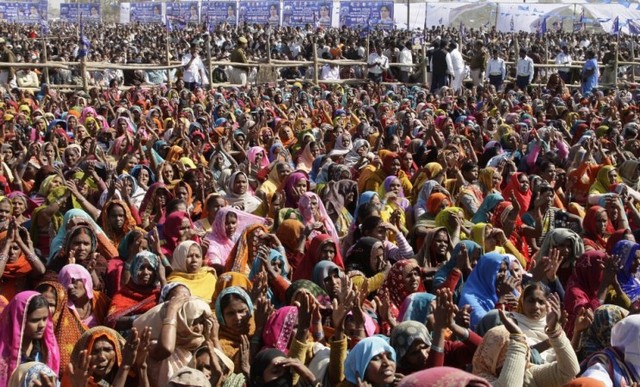By Dr Gilbert Sebastian
Sachin Mathew (name changed), one of my students who completed M.A. in at the Central University of Kerala subsequently did his B.Ed. and worked in a school in the rural part of Gorakhpur, the district the Chief Minister of Uttar Pradesh, Yogi Adityanath hails from. He had given me an interesting account of the actual conditions prevailing there. I asked him to write about it but was not inclined to write it. So I thought of making this brief note which is not, by any means, to denigrate our fellow citizens in north India but for the understanding of the compatriots of south India, especially, Kerala, Tamil Nadu and Andhra Pradesh which refused to give a second tenure to the Modi government. This is for the understanding of these south Indians who wonder why Modi government won a second term in spite of the note-ban which was an “organised loot and legalised plunder”, according to Manmohan Singh; the Rafale Deal which was the “Largest Defence Scam” in Indian history according to Adv. Prashant Bhushan; writing off the debts of 3 lakh 16 thousand crore rupees of big industrialists; acute farm crisis driving an average of 12,000 farmers to suicide every year; price rise; grueling unemployment; mob lynchings; etc. The pinch of the stomach made little impact on the electoral outcome in 2019. The majoritarian nationalist rabble-rousing on terrorist attacks especially at Pulwama and the surgical strike at Balakot in Pakistan were sufficient to win the votes of the north Indians. This signaled a return of nationalist ideology – communal and anti-Pakistan in character quite unlike the secular and anti-imperialist nationalism of the Nehru era.
Returning to the discussion on Gorakhpur, the Principal cum Owner of the school is a matriculation-failed person. Sachin Mathew was the most educated person among the teachers of the school. The fees in the school is around 3000 rupees per month. Yet the demand for education was so high that the students were sitting so cramped on the school benches that they could not free their hands for writing.
On the average, the supply of electricity in the district is only for four hours a day even as the summer heat goes up to 40-45 degree Celsius.
An average house in the area was a hall in which they live on the one side and their animals live on the other side. The youth dress impeccably with tucked in shirts and shoes. But if you visit their places of stay, it is clear that they live in very unhygienic conditions. Flies cover the food they offer so it is hard to follow their friendly prodding, ‘Khao, khao’ (Eat, eat). So Sachin Mathew decided not to visit their houses anymore.
When they hear that he was from Kerala, they express their high regard for the state which they say is very educated and equipped with knowledge of English and this appreciation is also reflected in the high demand for getting educated in schools where teachers from Kerala teach. But they invariably ask a Malayalee whether he/she eats beef and they add, ‘How could you do this? The cow is like your mother.’ Sachin Mathew hails from a Christian background in north Kerala. They give a complacent smile when they hear that he is from a Christian background. But they start hurling communal abuses as soon as they hear about Muslims.
The narrative above may cast light on the culture and living conditions of an average rural locality in north India and could make us understand why Modi was voted back to power. Rural underdevelopment and miserable living conditions in the Hindi belt go hand in hand with communal anti-Muslim sentiments, obviously powered by dominant class politics. The fertile land of the Gangetic plain makes agriculture an earning proposition. So people are able to afford costly education but the quality of education remains so low.
Article 45 under Directive Principles of the Constitution of India says, “The State shall endeavour to provide, within a period of ten years from the commencement of this Constitution, for free and compulsory education for all children until they complete the age of fourteen years.” (emphasis added). This promise remains belied even after 69 years of the inauguration of the Constitution and the prime responsibility lies with the dominant class politicians who should be asked to give an explanation. India would have been a very different country if at least, basic literacy was provided to all Indian citizens so that they would be aware of their basic rights and would not be swayed by communal passions. This is of extreme importance for the future of India because once the delimitation of constituencies is carried out by 2025, the seat share of south Indian states will further go down and the Hindi belt with a growing population would overwhelmingly determine the shared destiny of India. It may be underlined that the biggest challenge, in the days to come is to win people over from the grip of communal ideology.
Dr. Gilbert Sebastian is an Assistant Professor at the Central University of Kerala, Kasaragod.
26 May 2019
Source: countercurrents.org

